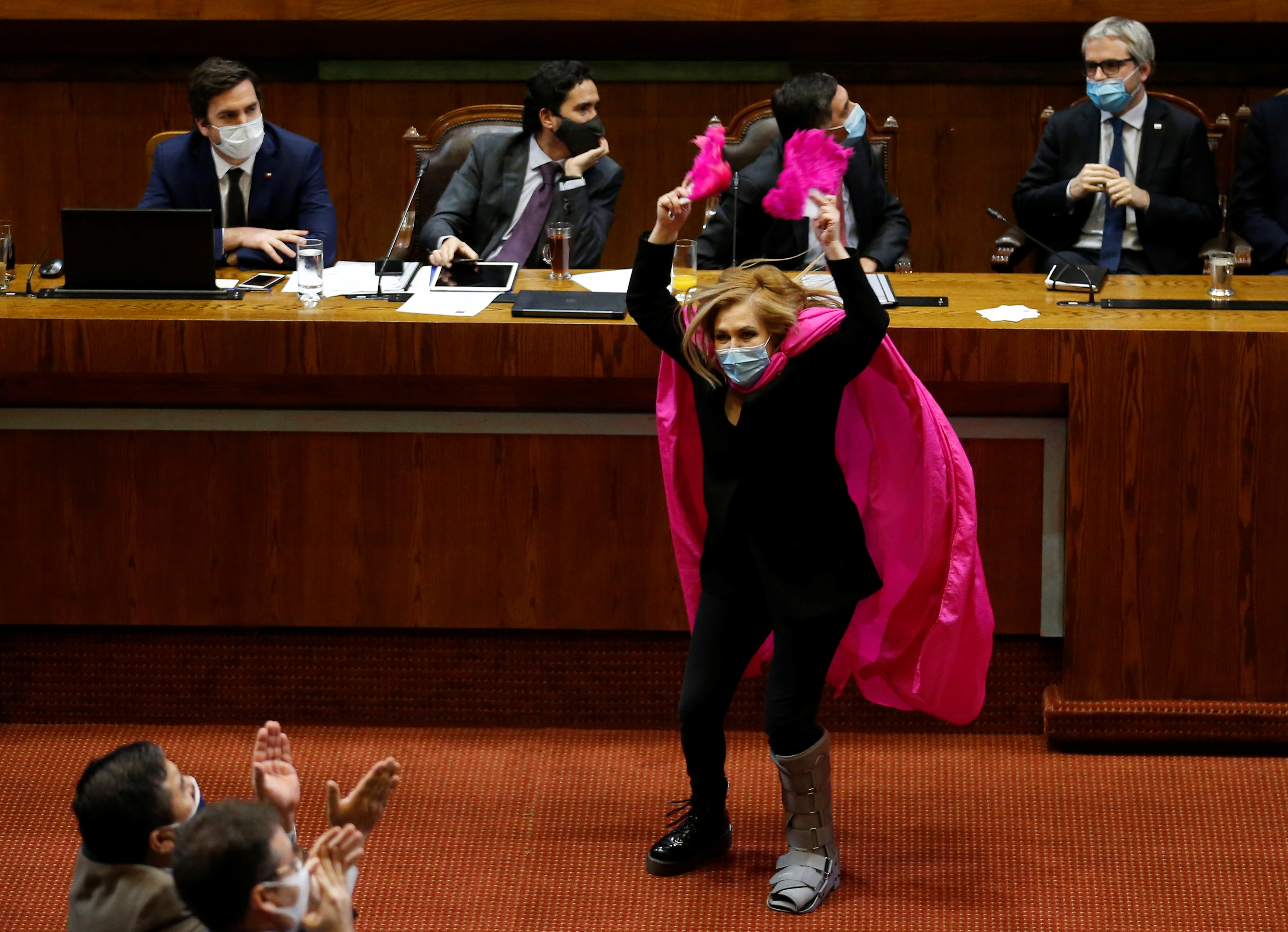
Since its installation, the Government of Gabriel Boric has been emphatic that they do not support a new pension withdrawal because it would affect the economy and they claim that it is not the solution, considering that three withdrawals have been made and the fourth did not receive the support of parliament for approval.
The Minister of Finance said “we are trying to follow a path that is very narrow, we are emerging from a crisis, we are trying to resolve issues, wounds or imbalances that have remained from that crisis, we need to generate capacity for future growth, and for that we need economic and financial stability”.
And in that context, “making a new retirement of pension funds is a bomb in the midst of this whole process, it is something that significantly diverts us from generating a stable basis for the reforms that are coming,” Marcel said.
He added “if we are worried about inflation, how are we going to approve a measure that will increase prices, above the values we are seeing today.”
“We are legislating for withdrawals that can make 10 million people and whose effects reach the entire population. That is, 19 million people are affected by inflation,” said the Secretary of State in the National Congress.
With regard to new actions to support sectors that are lagging behind in the economic recovery, Marcel said that “in a few more days the Government will announce a set of measures (...) that are aimed at the generation of jobs, which generate permanent income for families. Subsidies or withdrawals don't do it.”
On the recovery plan, the head of the fiscal wallet stated that it is not a measure against pension withdrawals, but rather it is “because the country needs it and I think that all of us who have public responsibilities, have to think in the same terms”, to reflect on what the country needs and “what can it cause more harm than good to the country”.
However, Marcel admitted that “it is difficult for parliamentarians to deal with this issue of withdrawals because they are under enormous pressure, but the best way to resolve the issue of withdrawals is to be clear whether this is good or bad for the country as a whole.”
In any case, the Government announced that the Family Emergency Work Income (IFE) will be extended, for three more months, that is, until September. This State aid corresponds to 50% of the gross salary of persons who qualify for the benefit, although it is capped at $252 per month.
Discussion in parliament
Different controversies have generated in Congress the new idea of generating a new retirement for the Pension Fund Administrators (AFP), who have been sponsored by the humanist deputy Pamela Jiles.

The MP leading the motion was critical of the chairman of the Constitution Commission Karol Cariola, a deputy in the Government coalition. Jiles accused his peer of “making time” for the president to announce the recovery measures.
The next session of the Constitution Commission will be next Tuesday, April 12, and in view of this, Deputy Jiles said that if an agreement is not reached in that session, she will take action in this regard.
“Madam President, I want to tell you that if this procedure is extended beyond the next session on Tuesday of next week, I will be obliged to exercise censorship against you,” said MP Pamela Jiles.
In the same vein, he urged that “not only has it not been revolutionary, but it has been delaying with regard to an urgent need. My unique and main loyalty is not to any elite or to the old elite or to the new elite that is in power, but to my suffering people.”
Faced with this statement, Commission President Karol Cariola replied that “I have not missed the truth, here are several Members who can attest to what we have raised, that the working time agreements that we have taken as a Commission, that this is its third session, because the first was constitutive, I was not President, this is my third session and I am already merging the bills.”
At the last session of the Constitution Commission, it was decided to merge seven proposed projects of the fifth AFP withdrawal, ranging from being able to take out 10% to 100% of the interim savings.
During the vote for the union of the different projects, the deputy Jorge Duran of Renewal Nacional and member of the Commission said, “I cannot pass up that the current misgovernment intends to continue to disgovern from Argentina, something that I find extremely serious and dangerous for democracy in our country, is that the President Boric from Argentina intends to guide his ruling coalition, and I quote 'both the CP and all the parties that make up the government, all have the awareness that a new withdrawal would be tremendously damage'”.
However, the possibility of withdrawing again from the AFP is a motion that must be ratified by the chamber of the Chamber of Deputies, once all the agreements are reached within the Constitution Committee, which has an agenda next Tuesday, April 14, session.
KEEP READING
Últimas Noticias
Debanhi Escobar: they secured the motel where she was found lifeless in a cistern

The oldest person in the world died at the age of 119

Macabre find in CDMX: they left a body bagged and tied in a taxi
The eagles of America will face Manchester City in a duel of legends. Here are the details

Why is it good to bring dogs out to know the world when they are puppies




